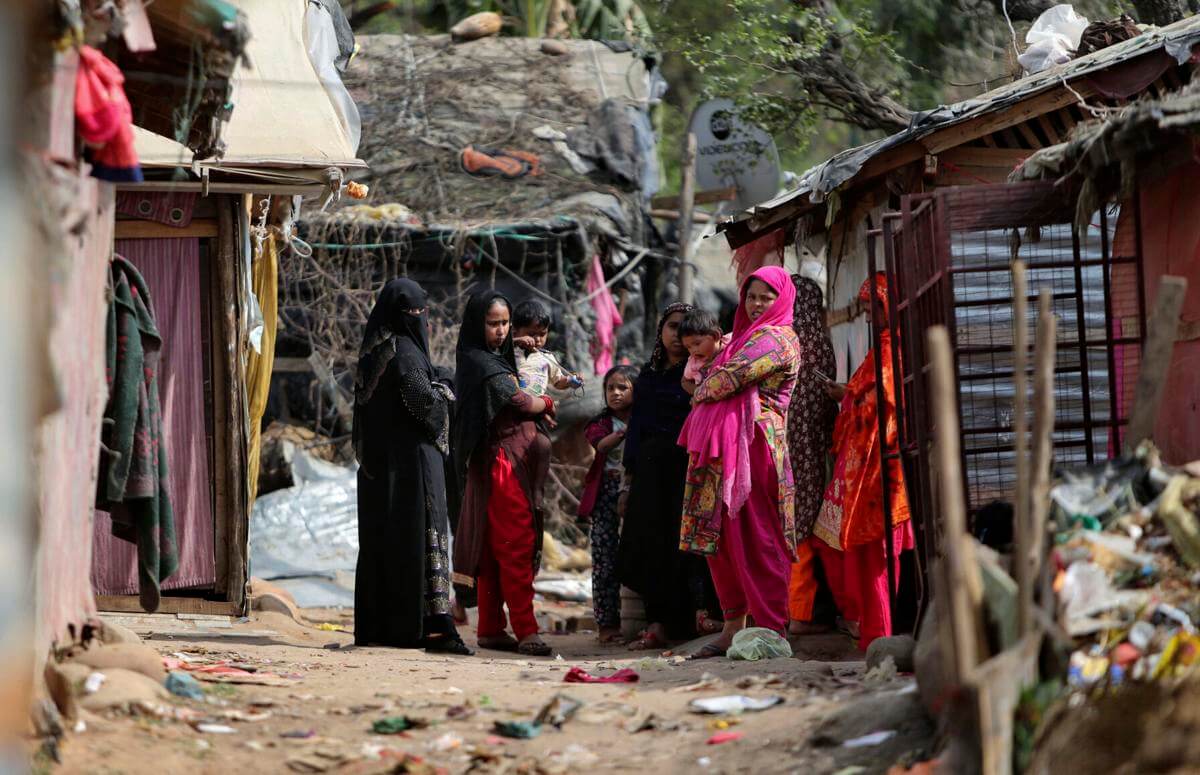170 Rohingya Muslims living in India have been gathered and detained at a temporary detention facility at Jammu’s Hira Nagar jail. The authorities have also subjected the community to threats of deportation to Myanmar, from where they fled genocide and human rights abuses.
According to two government officials who were quoted by the Hindustan Times, on Sunday, the refugees were found to be living illegally in the northern region of the Indian state of Jammu and Kashmir, and the process to deport them back to Myanmar has already begun this weekend. At the holding centre, biometric tests were conducted to verify the identities of the refugees. “The drive is part of an exercise to trace foreigners living in Jammu without valid documents… We have started the process of deportation of these refugees,” said one of the two officials.
It is believed that the mass detentions that have begun in the city of Jammu are part of a larger nationwide crackdown against the Rohingya Muslim community. Currently, around 5,000 refugees are settled in the state. Around 40,000 Rohingya Muslims live in camps and slums around India—with high concentrations in Jammu, Hyderabad, Nuh, and New Delhi—and it is thought that many of them are undocumented. Although most of the community holds registered United Nations High Commissioner for Refugees (UNHCR) refugee ID cards, which are supposed to offer protection from arbitrary detention, the refugees have still been detained. However, India is not a signatory of the 1951 Refugee Convention, an international agreement that establishes the duties and responsibilities of states with respect to refugees. Hence, it cannot be obligated to undertake responsibility for the refugees under this convention.
In August 2019, Prime Minister Narendra Modi revoked the special status of Jammu and Kashmir granted under Article 370 of the Indian Constitution. Since then, the state has been ruled by the federal Hindu nationalist government in New Delhi, which views the Muslim immigrants as “illegal aliens” and a “security risk” and has therefore ordered thousands of them to be identified and deported.
Earlier this month, the Indian coast guard spotted a boat with 81 Rohingya Muslims in the Andaman Sea, attempt to escape from Cox’s Bazaar in Bangladesh to Malaysia or Thailand. Since the boat was found by the Indian Coast Guard, the country’s Foreign Ministry has been urging Bangladesh to ensure the “safe and secure repatriation” of the Rohingya refugees. However, Bangladesh has refused to take responsibility for the refugees that fled from its own refugee camp.
The genocide against the Rohingya in Myanmar has been ongoing since the 1970s. Since then, the Muslim community has been largely confined to refugee camps, with little access to education, healthcare, or jobs, and heavy restrictions on their movement. As a result, around one million Rohingya have sought refuge in neighbouring countries like Bangladesh and India. However, for decades now, host countries as well as Myanmar have refused to acknowledge them as citizens and each insists that they are “illegal immigrants” of the other, effectively rendering them stateless. Myanmar’s military, the Tatmadaw, views this as absolving them of any responsibility to the Rohingya and has led an ethnic cleansing campaign that peaked in August 2017, when the military drove the Rohingya out of the Rakhine state by torching almost 300 villages and killing at least 10,000.
India Threatens Rohingya Refugees With Deportation
Indian police have rounded up 170 Rohingya refugees and placed them in detention centres and threatened to deport them back to Myanmar.
March 9, 2021

SOURCE: CHANNI ANAND, AP
